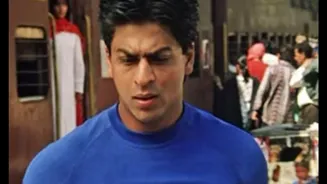Indian railway stations possess a unique charm, blending the hustle and bustle of passengers, trains, and platforms with countless stories waiting to be told. Many of these stations have gained fame through
Bollywood films, becoming iconic backdrops for memorable scenes.
From Dilwale Dulhania Le Jayenge to Kuch Kuch Hota Hai, several legendary railway sequences were shot at Apta, a station in Maharashtra, which continues to captivate filmmakers and audiences alike. Its simple charm, open spaces, and scenic surroundings make it a favourite location for shooting even today.
Apta station is situated in Raigad district, Maharashtra, on the Panvel-Roha railway line, around 75-80 km from Mumbai. Despite its modest appearance and routine stops by local and passenger trains, Apta has become a popular choice for filmmakers.
Why Filmmakers Love Apta
Stations chosen for film shoots often need to have fewer crowds and open spaces for easier filming. Apta fits this requirement perfectly with its greenery, minimal traffic, and spacious tracks. A separate track and coach arrangement at the station allows filmmakers to shoot comfortably and efficiently.
Famous Films Shot at Apta
The station gained iconic status with the climax scene of Dilwale Dulhania Le Jayenge (DDLJ), where Kajol runs to catch a moving train as Shahrukh Khan holds her hand. Other films such as Kuch Kuch Hota Hai, Rang De Basanti, Swades, Fida, Bunty Aur Babli, Khaki, Shaadi No.1, and Slumdog Millionaire have also been filmed here. Several TV shows and web series have used Apta as a shooting location.
Revenue From Film Shoots
Apta station has proved profitable for Indian Railways as production houses pay substantial fees for filming.
The charge for an engine with four coaches is Rs 50 lakh. A-category stations have a daily license fee of Rs 1 lakh, while B1 and B2 category stations charge Rs 50,000. During peak seasons, an extra 15% is added.
Special Charges For Goods Trains
The rules differ for goods trains, which incur a minimum charge for 200 km, even if only 1 km is used. This means a daily charge of Rs 4,26,600, with additional charges of Rs 900 per hour if the train is stopped for shooting. Apta station thus stands out not only as a cinematic hotspot but also as a source of significant revenue for the railways, blending real-life profitability with its on-screen charm.













